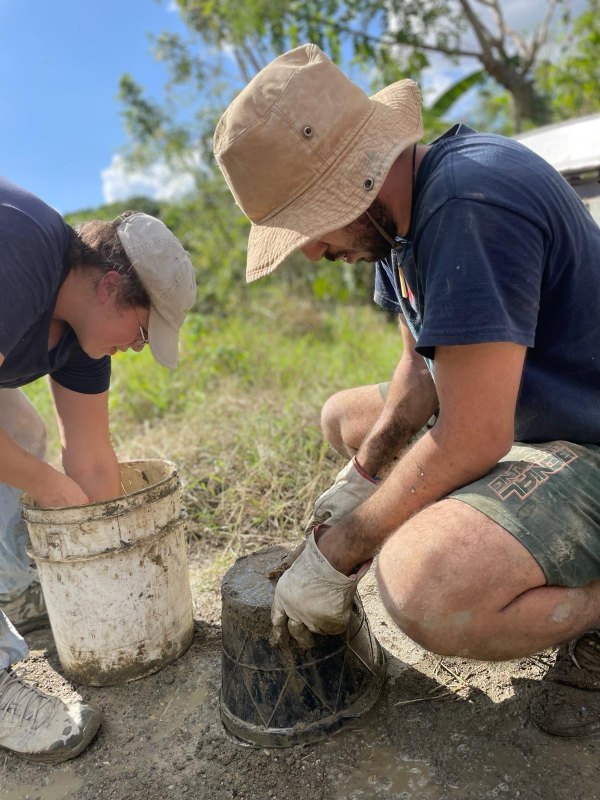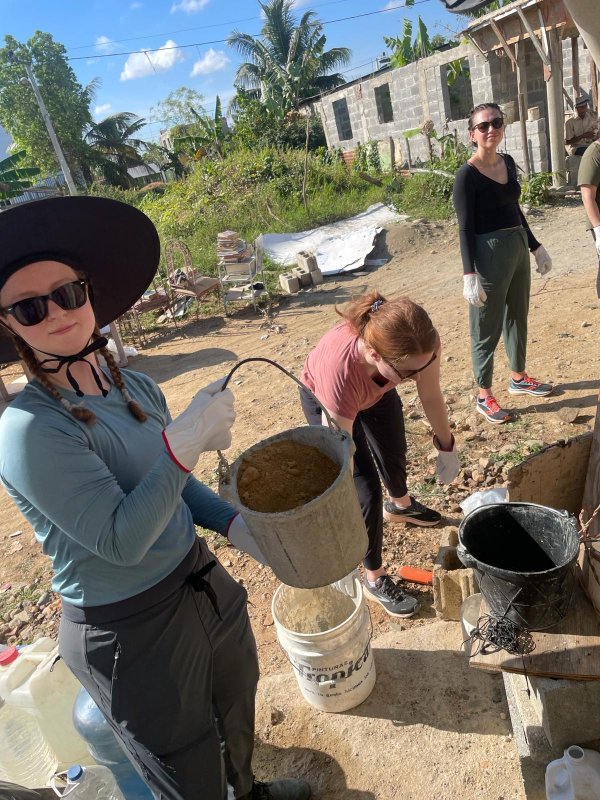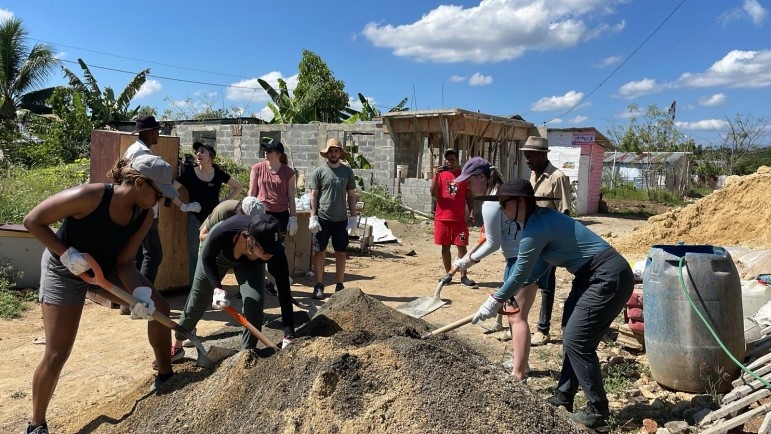Students wipe away sweat as they pass buckets of cement to each other in the heat of Villa Verde, a community in the Dominican Republic.
They’re pouring a new floor for a home that, until now, had only a base of dirt to stand, sit and sleep on. Residents of the house join in, building a clean, sturdy foundation that will support them for years to come.
This is what you’ll see when you join Rush University’s RISE program. It’s a yearly opportunity for students across all three of the university’s colleges to leave the U.S. during spring break. They get the chance to help people while better understanding how poverty and social factors impact health on a more global scale.
“Students come back mindful of the extent of the globe, the extent of a city, the extent of a neighborhood,” academic program manager Dina Rubakha says. “You're not isolated to just your medical center or your practice. Your backyard can be as big or as small as you allow it to be.”
“I wanted to do work that improved the health and quality of life of the people I serve,” medical student Marco Metry says. “And that is exactly what I got to do.”
A different kind of care

RISE stands for Rush Interdisciplinary Service Experience. Similar university programs bring primary and surgical care to communities in need.
But RISE gives students who don’t yet have advanced degrees a chance to contribute in other ways. While they may not be directly providing medical care, they are making a difference.
In the U.S., many of us take our homes’ floors for granted and rarely think about them. But living with a dirt floor can affect a person’s well-being, both physically and mentally.
“Home is where health begins,” says Zoe Kusinitz, program manager, Office of Global Health. “If the students on this team can help make someone's home a healthier place to be by replacing dirt with concrete, they have already begun to provide health care well before they graduate with their respective degrees.”
Over the course of a day, students in the program work alongside the residents of a home to pour a new floor.
“An older gentleman and a younger gentleman who’d both been injured helped us as much as they could, even with their injuries,” Rubakha says. “They're proud of their homes, and they were so excited to have this group of young people helping them.”
During the weeklong trip, the students pour floors for five homes. It can make a huge difference for the people who live there.
Research shows that cemented floors improve child health by reducing infestations of intestinal parasites. It also often improves mothers’ satisfaction with their homes and quality of life for those living in their home.
“Home is where health begins. If the students on this team can help make someone's home a healthier place to be by replacing dirt with concrete, they have already begun to provide health care well before they graduate with their respective degrees.”
“They walk into a home where there's a completely cemented floor,” Rubakha says. “They're no longer breathing dust or getting everything dirty or worrying about flooding.”
“Before RISE, given the choice between going on a trip where I get to help with surgeries or build floors, I would have chosen the surgeries,” Metry says. “But I believe that we got to have a huge impact on the lives of the people we served.”
The program also strengthens relationships with the people of Villa Verde, which in turn helps with other programs and projects.
“This is a way to build trust with the community that has a huge effect on future projects like clinics and water sanitation plants,” Metry says. “We also helped with inventory in preparation for the medical mission that happened the following week and surveying ongoing projects.”
Learning in class, learning in the real world

Before students leave the U.S., the program requires some academic learning. Over the course of two sessions, they learn about and discuss the social determinants of global health, photojournalism and women in global health, among other topics.
“The goal of these sessions is to frame thinking as students enter a new setting,” Rubakha says. “It shapes what they're looking out for and how they're thinking about this unfamiliar environment. Because even though the work can be very different from the work they'll be doing in their careers, they can take the thinking behind it everywhere with them.”
Classroom learning is an important part of the program that can mold students’ experiences. But the program also offers a unique opportunity for students to learn from living outside of their comfort zones.
That can be especially important for someone with a career in health care. Patients who have diverse, unfamiliar backgrounds and languages will need care, and providers need to adapt.
“In your home, you don't need to adapt,” Rubakha says. “Not to the temperature, language, food, environment or people. But when you do global health work, you have to stretch yourself and come with a desire to learn from it, be humbled by it, be accepting and be willing to contribute.”
Beyond the lessons students take from the program into their careers, they also learn a lot about their own lives. It changes their perspectives and gives them a new appreciation of the opportunities they have.
“I was reminded that a large part of whatever success I have in my life is not due to me,” Metry says. “With a global lens, I definitely have much more than I originally thought. I met many people who are more hardworking, intelligent and talented than me. But the spectrum of things they can achieve is very different. Giving opportunities to people with the fewest options produces much more for the world than the resources it takes.”
The RISE program is open to all Rush University students. You can learn more about it on the RISE web page or email any additional questions you have to global_health@rush.edu.

